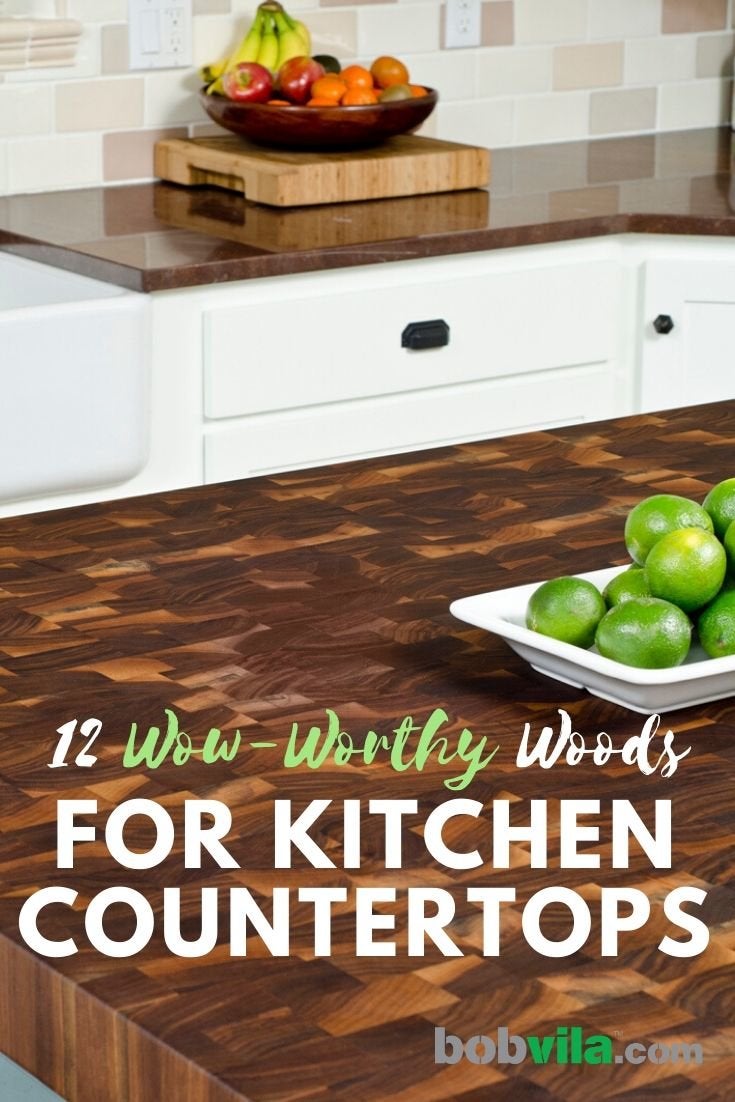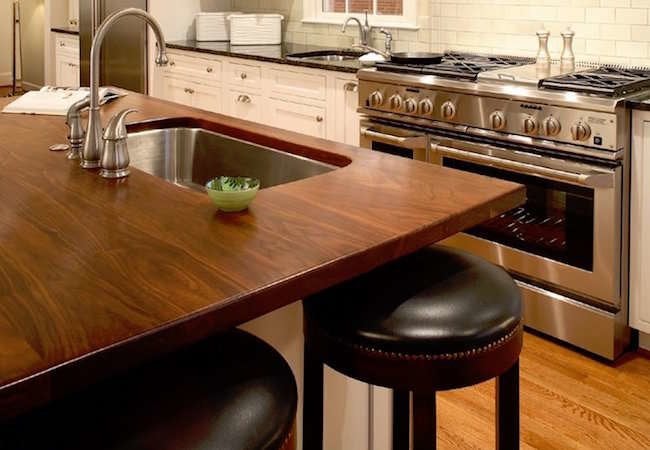

We may earn revenue from the products available on this page and participate in affiliate programs. Learn More ›
Hard Maple
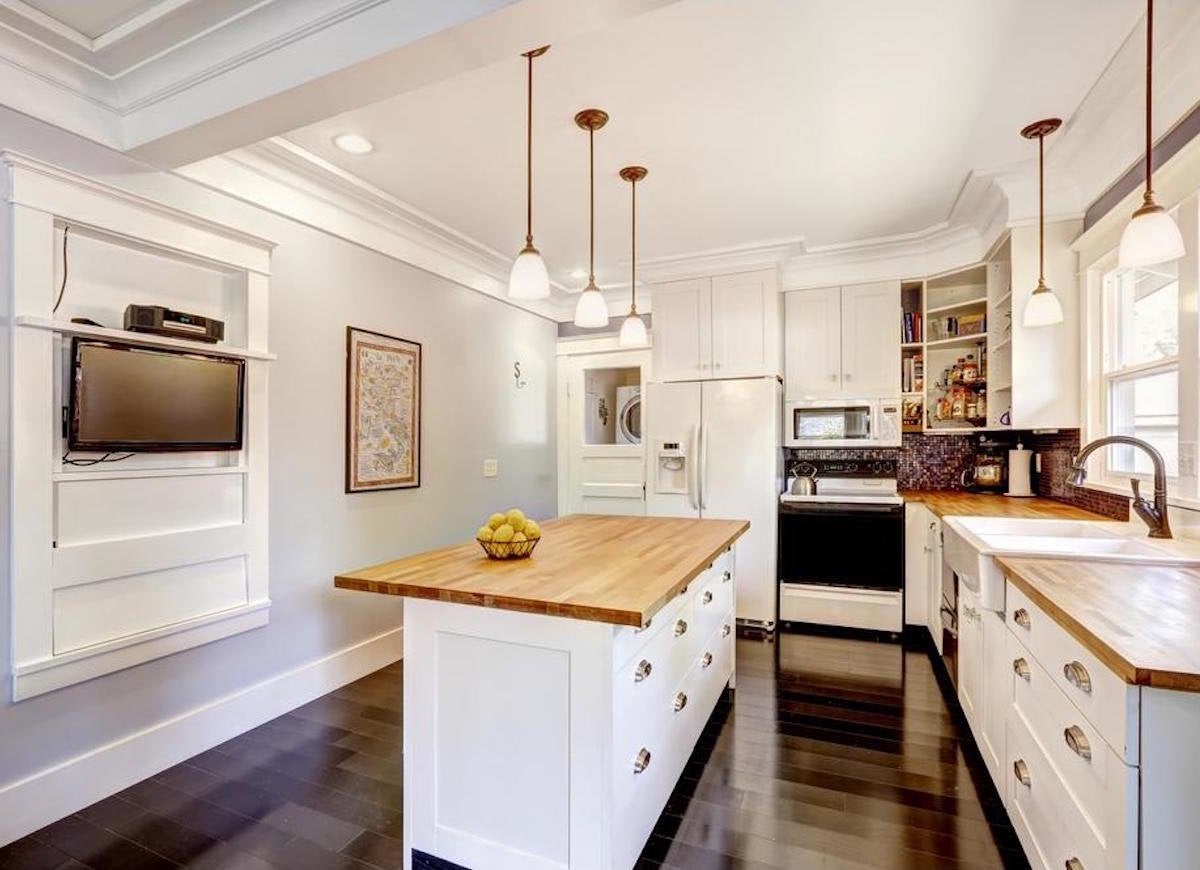
While a simple, straight grain makes hard maple beautiful, its durability and resistance to abrasion qualify the wood as an ideal material for butcher block countertop installations.
Related: The Best Countertop Material for Every Type of Kitchen
Teak
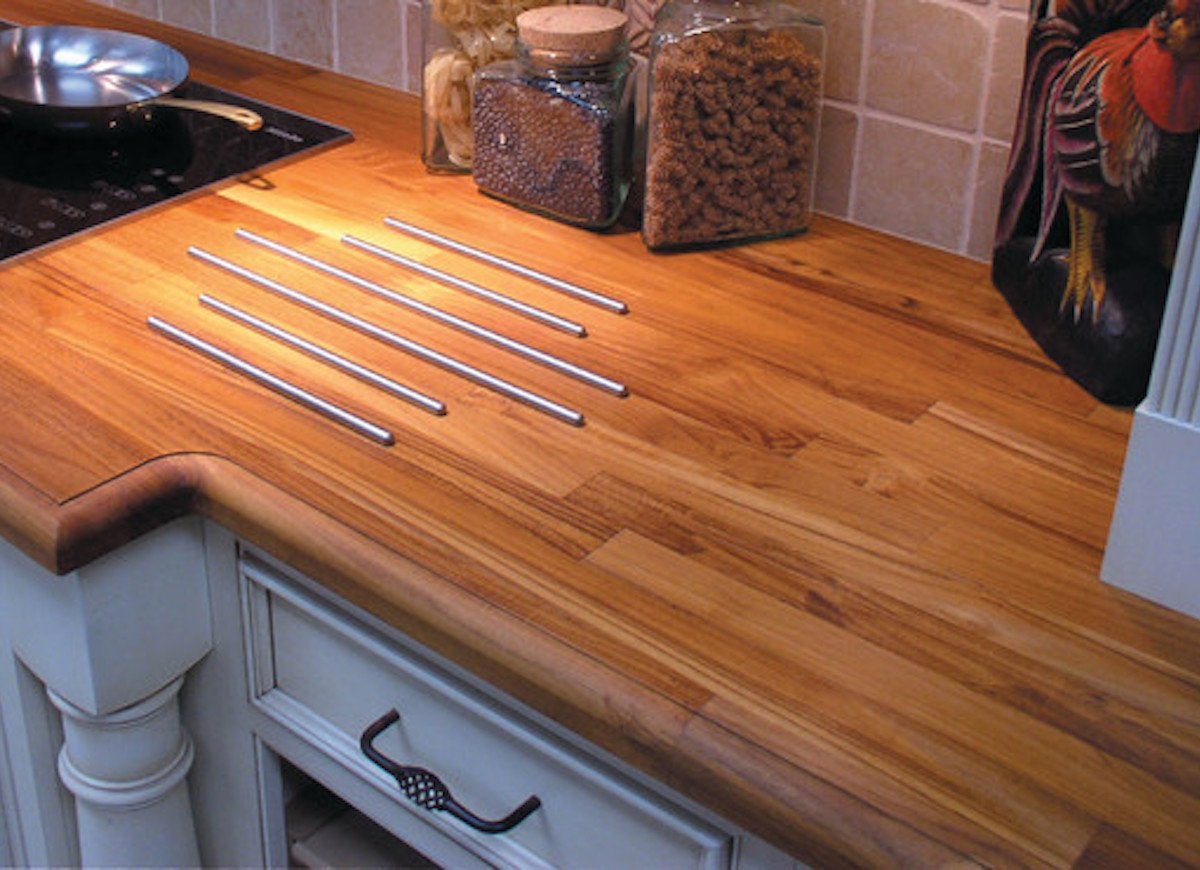
A tropical hardwood from Mexico’s Pacific coast, teak is reliably sturdy and appeals to those with somewhat exotic tastes. On top of a rich, warm color, teak boasts a naturally high oil content, making the species resistant to moisture—a huge plus for the spill-prone among us!
Tigerwood
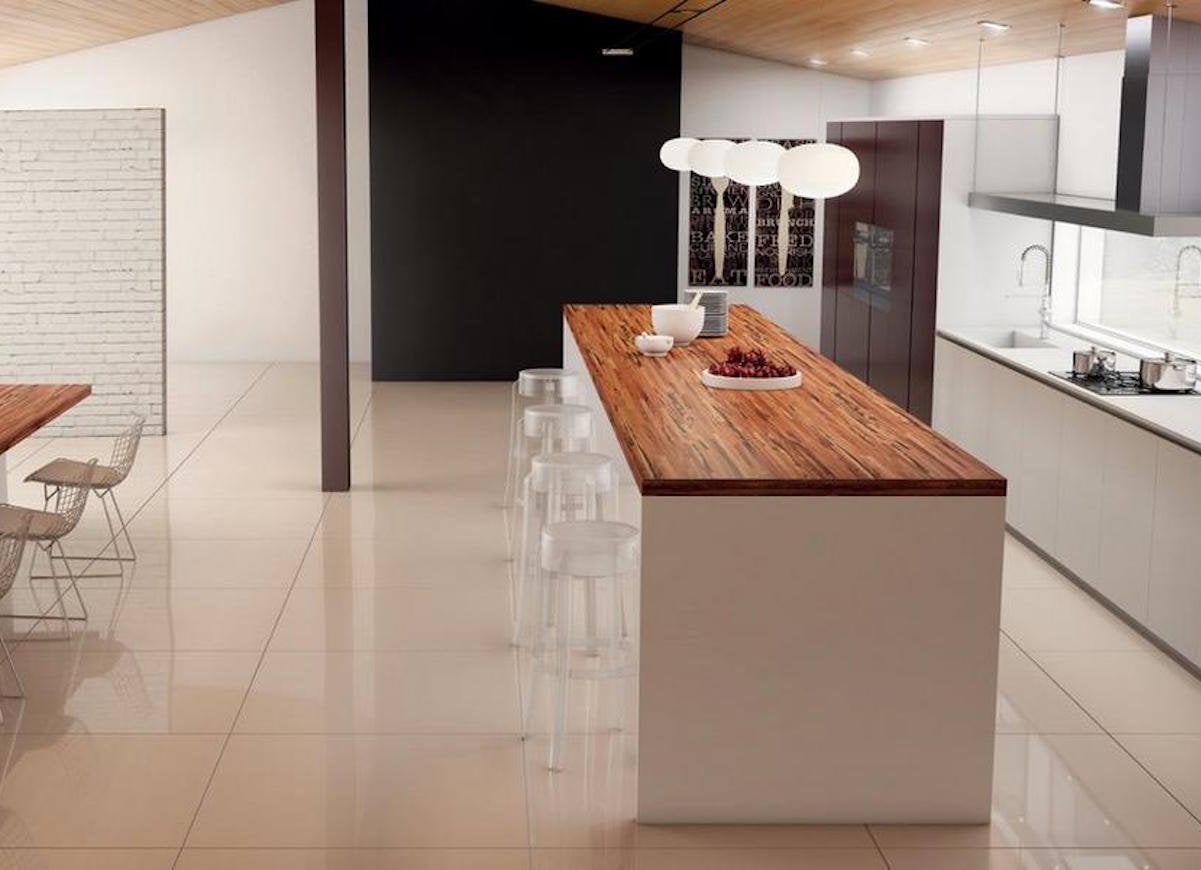
It should come as no surprise that one of the defining characteristics of tigerwood is its striped quality. It’s not often used as a butcher block, but tigerwood is the hardest species on this list and would undoubtedly make a strong, lasting design statement in any kitchen.
Related: 25 Kitchen Trends You Might Regret
Black Walnut
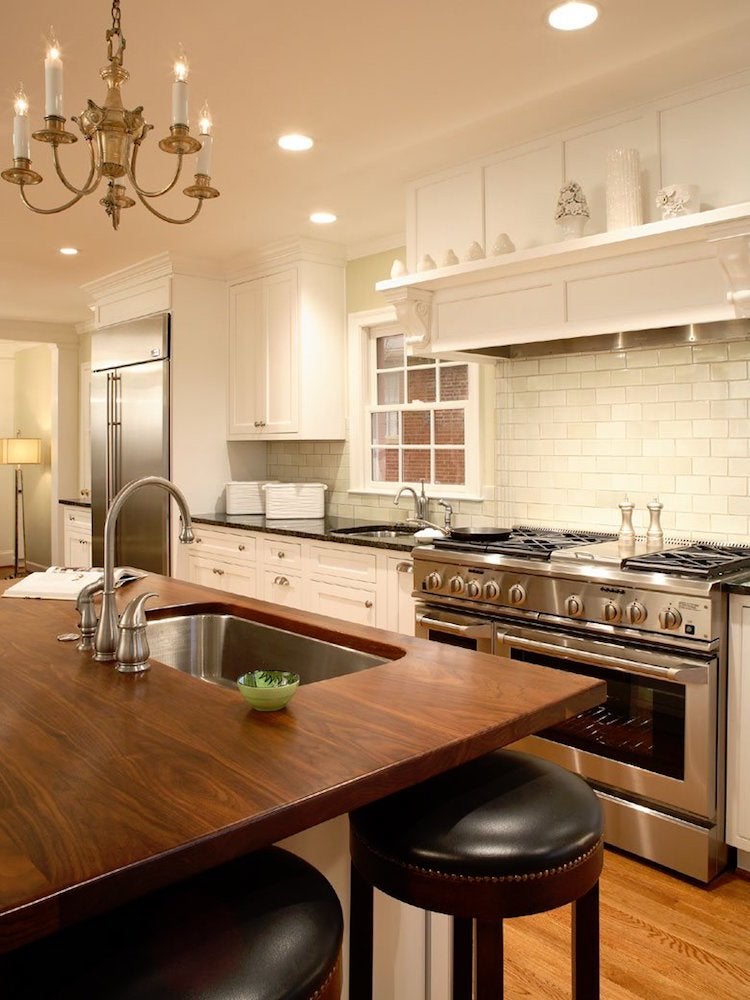
etsy.com via woodironandmore
Black walnut is easily one of the most revered woods used in home decor on account of its toughness and beautiful grain. The color can vary; while the sapwood is a honey cream, the heartwood is a brown or black that verges on purple over time.
Related: 10 Ways You’re Accidentally Ruining Your Countertops
Cherry
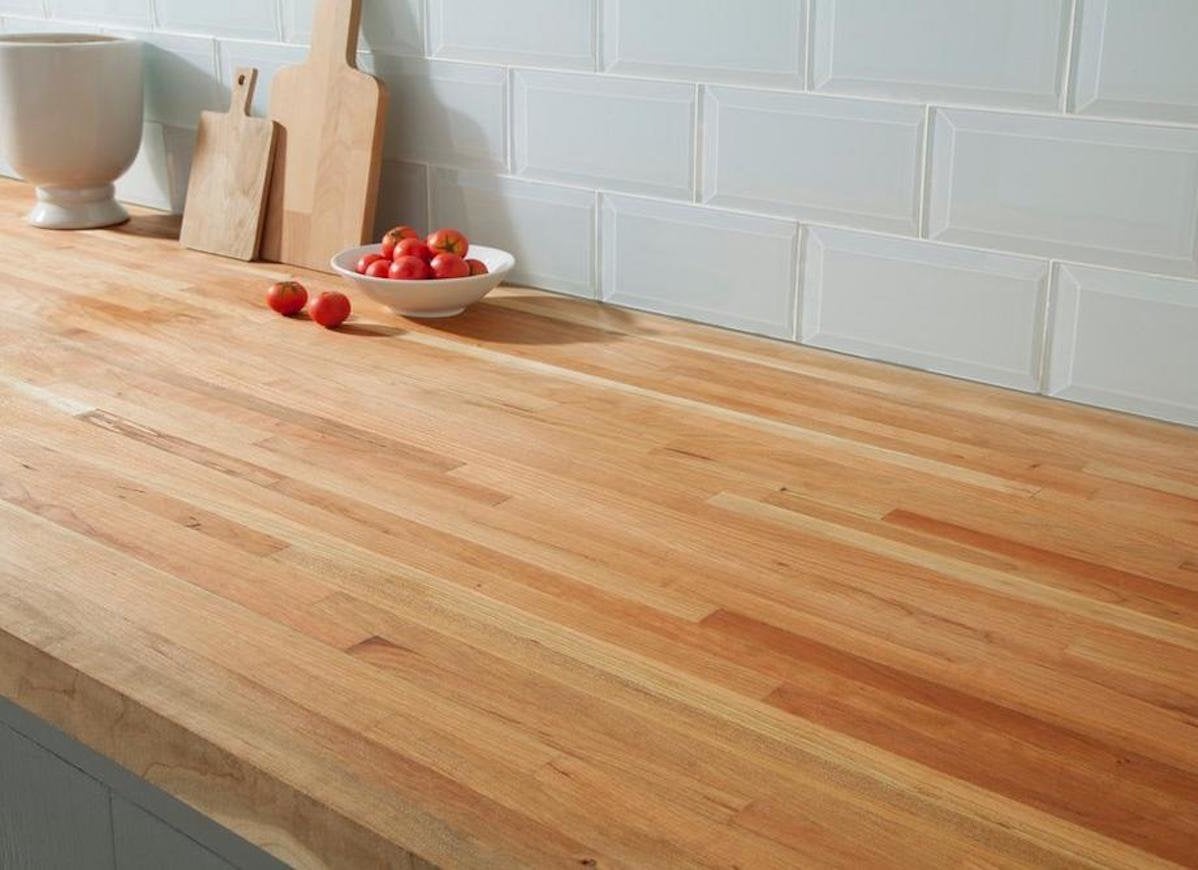
Typically used in furniture construction, cherry is a classic American wood with a subtle red hue that deepens with age. Used in everything from butcher blocks to pianos, cherry’s smooth and even finish brings with it a touch of sophistication.
Zebrawood
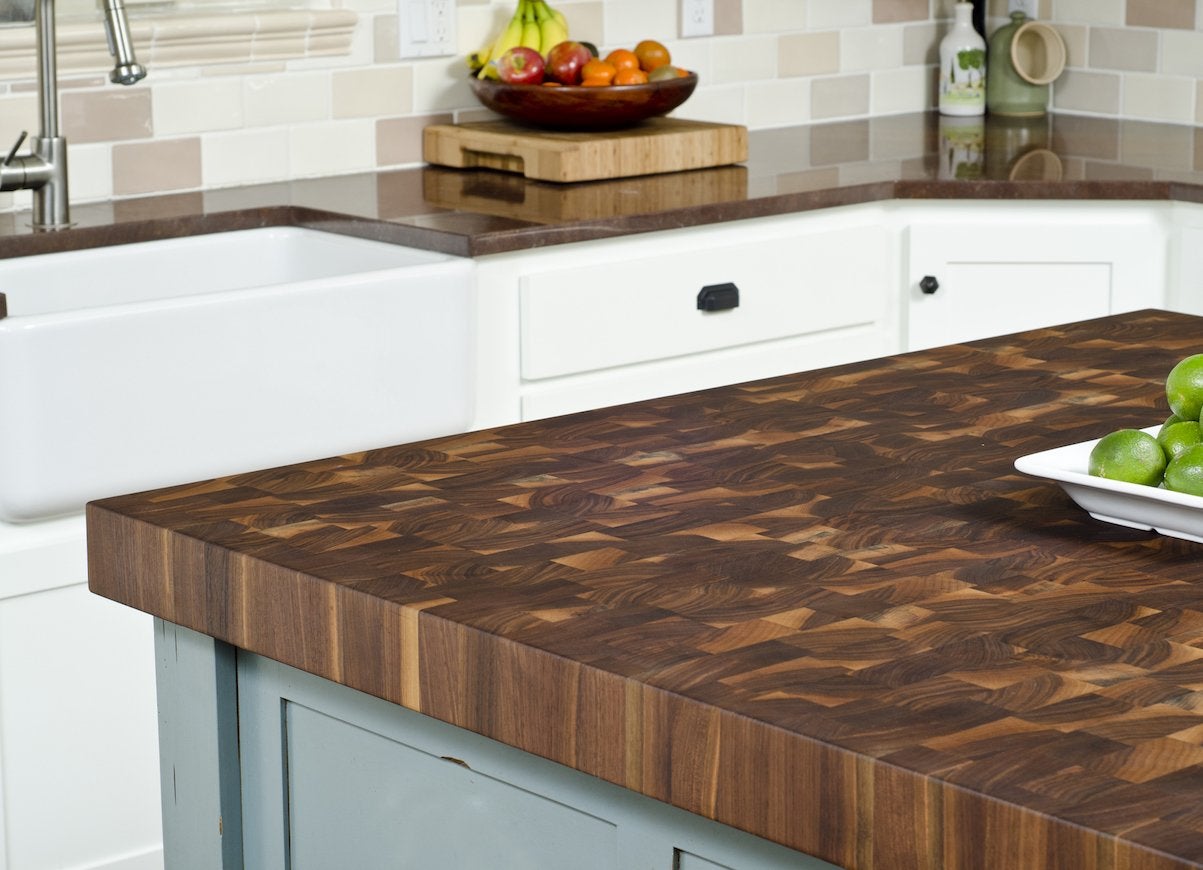
Aptly named for its striking stripes, zebrawood is commonly used as a home accent. But this beauty is also a beast. It will stand up against almost anything you throw at it, all while adding an unmistakable ‘wow’ factor to your kitchen.
Bamboo
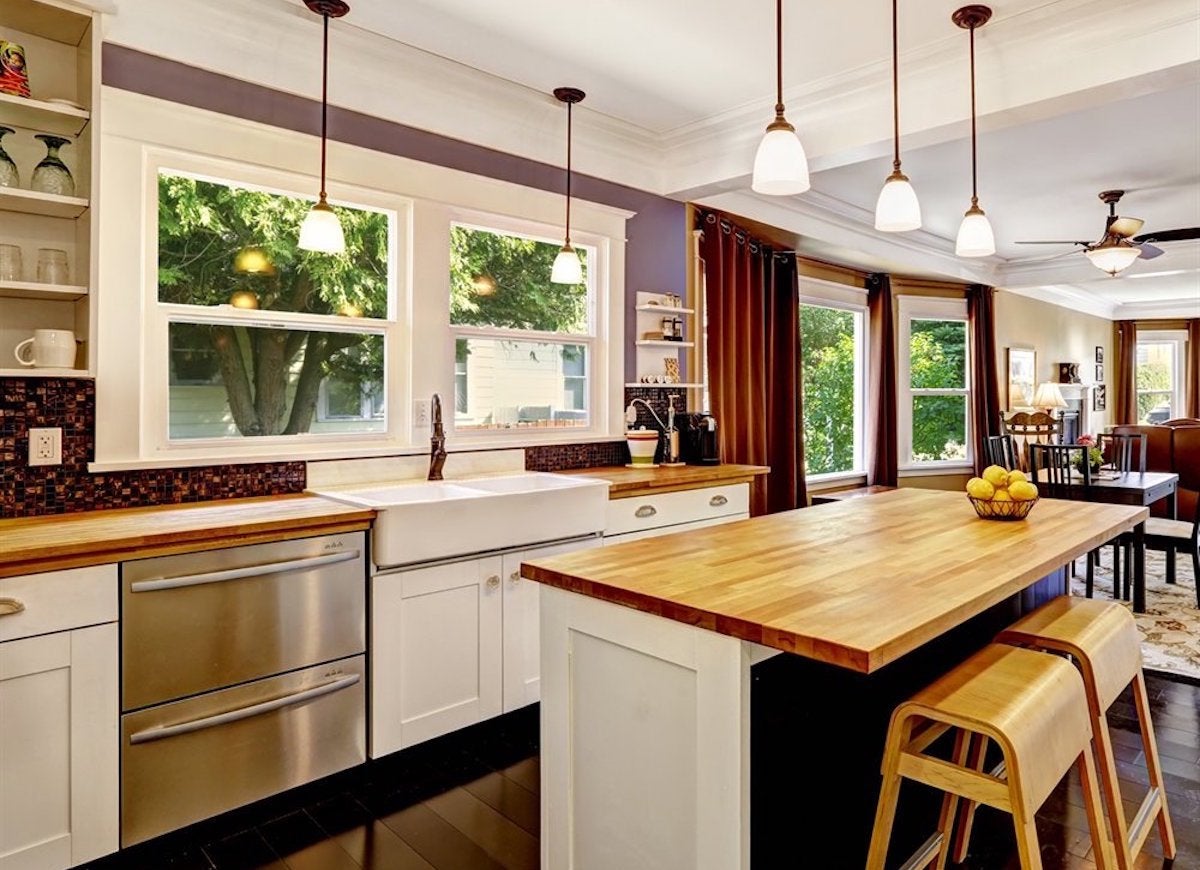
A popular cutting board material, it’s no surprise that bamboo makes a fantastic kitchen countertop. Clean, modern, and sturdy, bamboo is one of the most rapidly renewing species on the planet, making it the eco-friendly choice among this group. Your style options range from a sumptuous whole grain to an edgier parquet design.
Related: 10 Ways You’re Accidentally Ruining Your Countertops
Wormy Chestnut
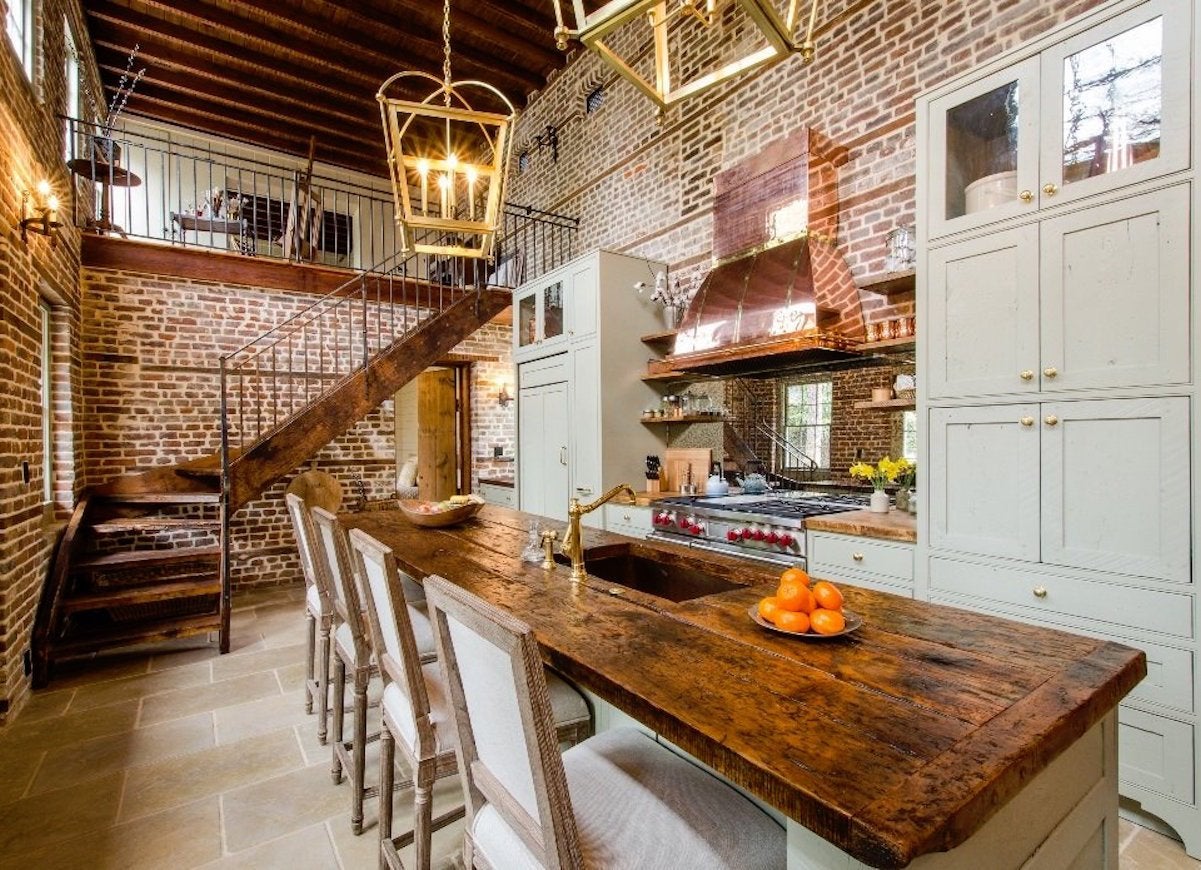
etsy.com via ourhandmadetable
Wormy chestnut, a reclaimed lumber, radiates antique rustic charm. But while the country look is unique and on-trend, this type of wood is soft compared to the others and best avoided when it comes to butcher block.
Related: 12 Rustic Kitchen Ideas That Bring Your Space Back to Basics
Wenge
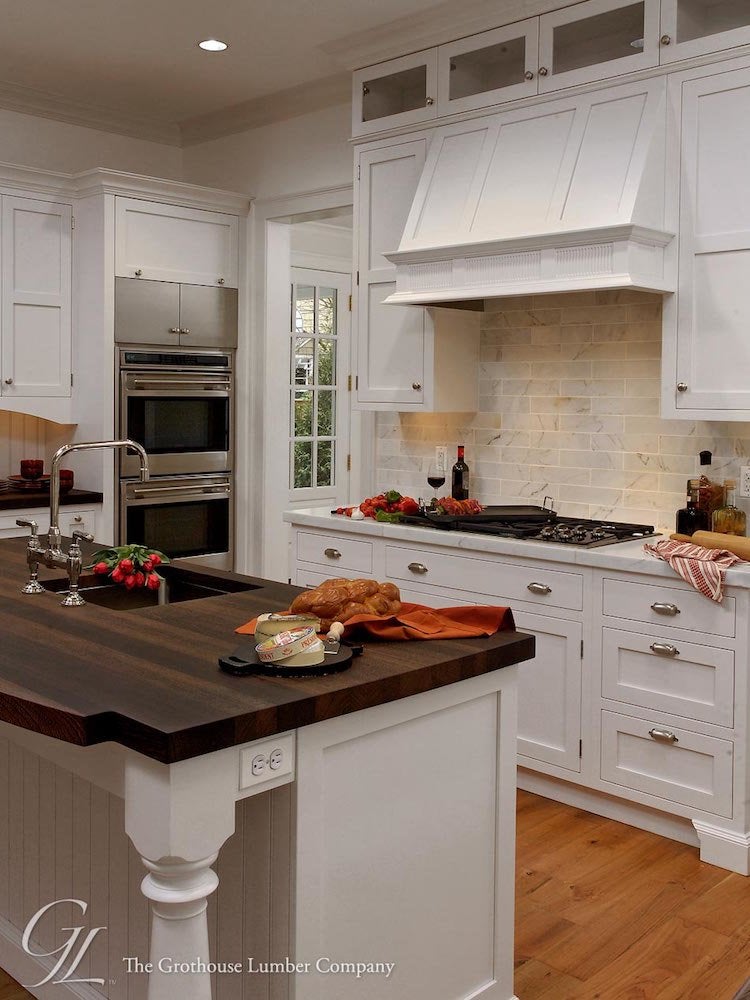
Grothouse; Designer: Jennifer Gilmer Kitchen and Bath
An African hardwood, wenge has a sought-after, natural dark brown-black color. Often chosen for its rich hue and straight grain, wenge is highly durable and commonly used in furniture.
Beech
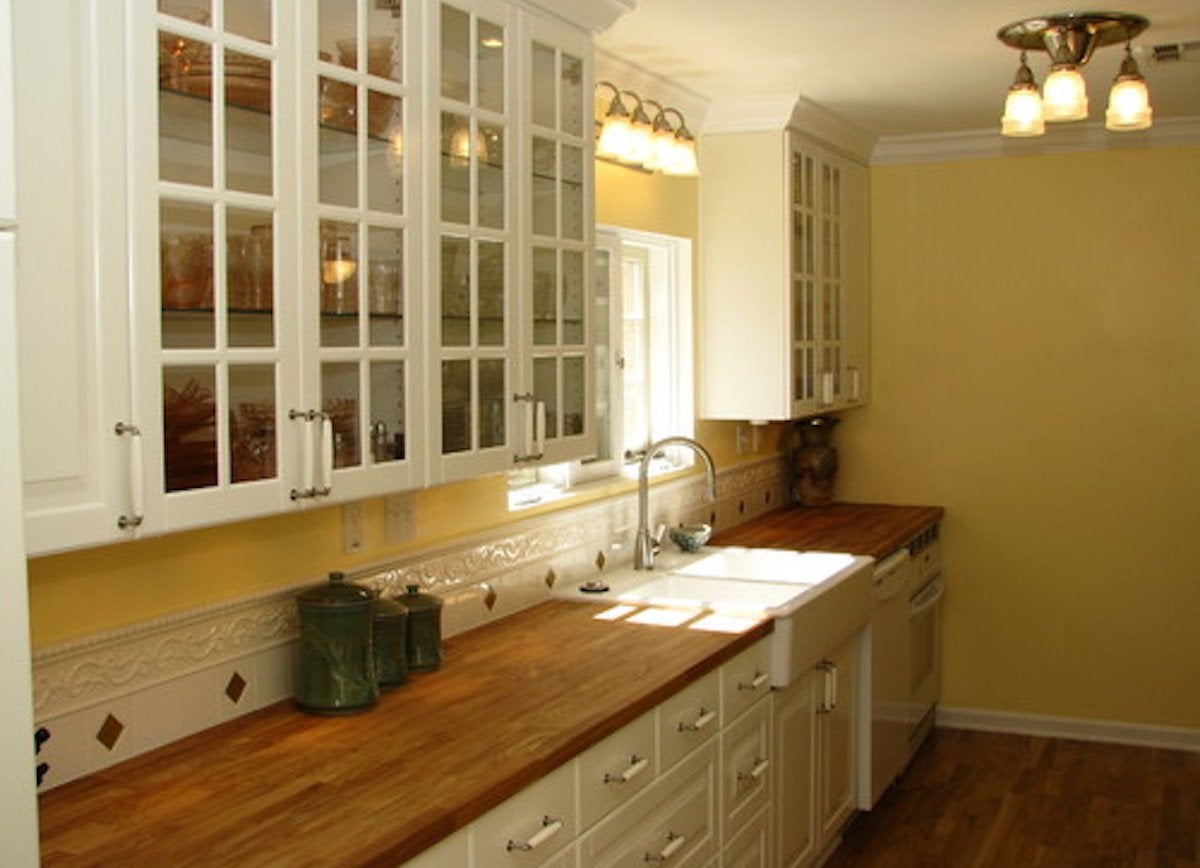
Before the advent of the chainsaw, many a beech tree was left untouched by lumberjacks, because they were too heavy and tough. Now the species is widely available, relatively affordable, and undeniably good looking, with a nice orangey pink hue that takes finishing stains nicely.
Related: The Best Kitchen Islands Under $500
Hickory
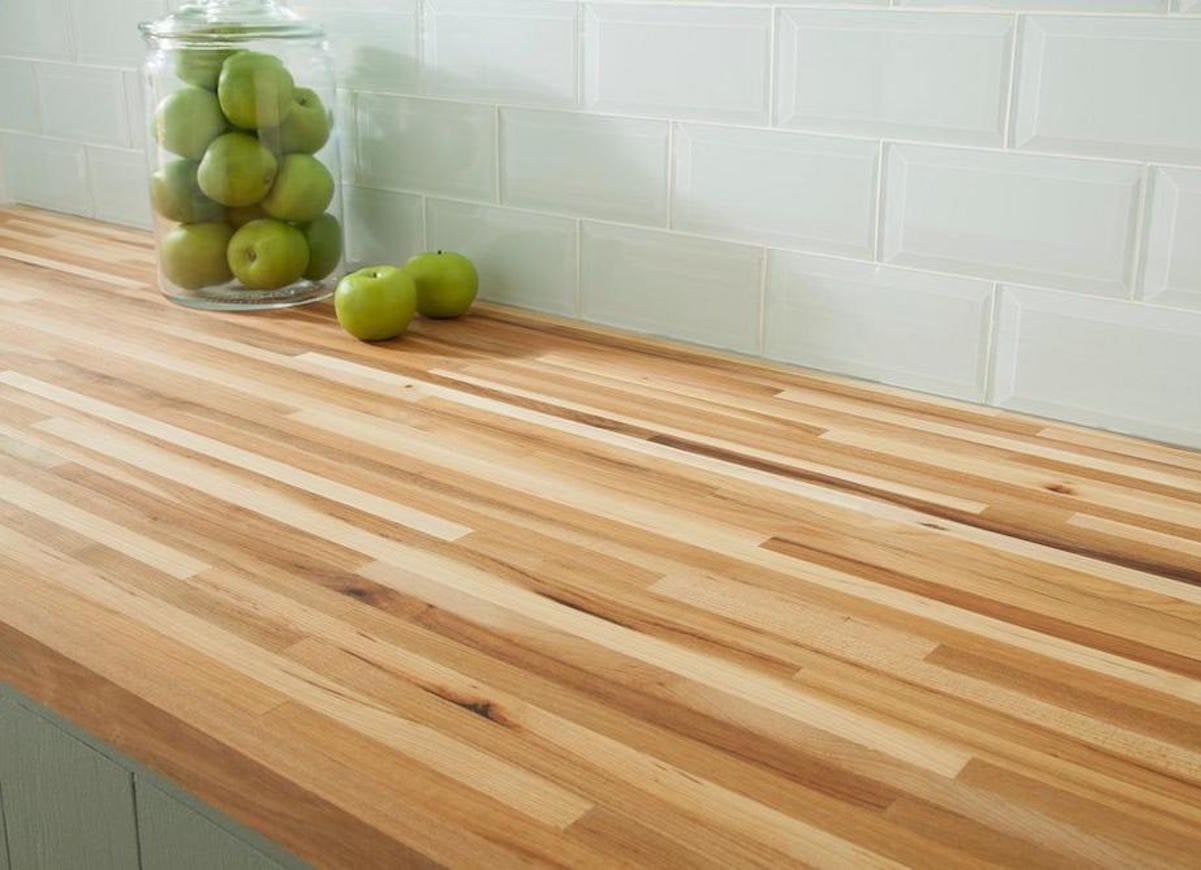
Hickory is the strongest American wood, the “Hercules” of American countertops, and the very first American hardwood. So if hickory could survive the Ice Age 50 million years ago, you can bet it will survive the wear and tear it’ll receive in your kitchen!
Mahogany
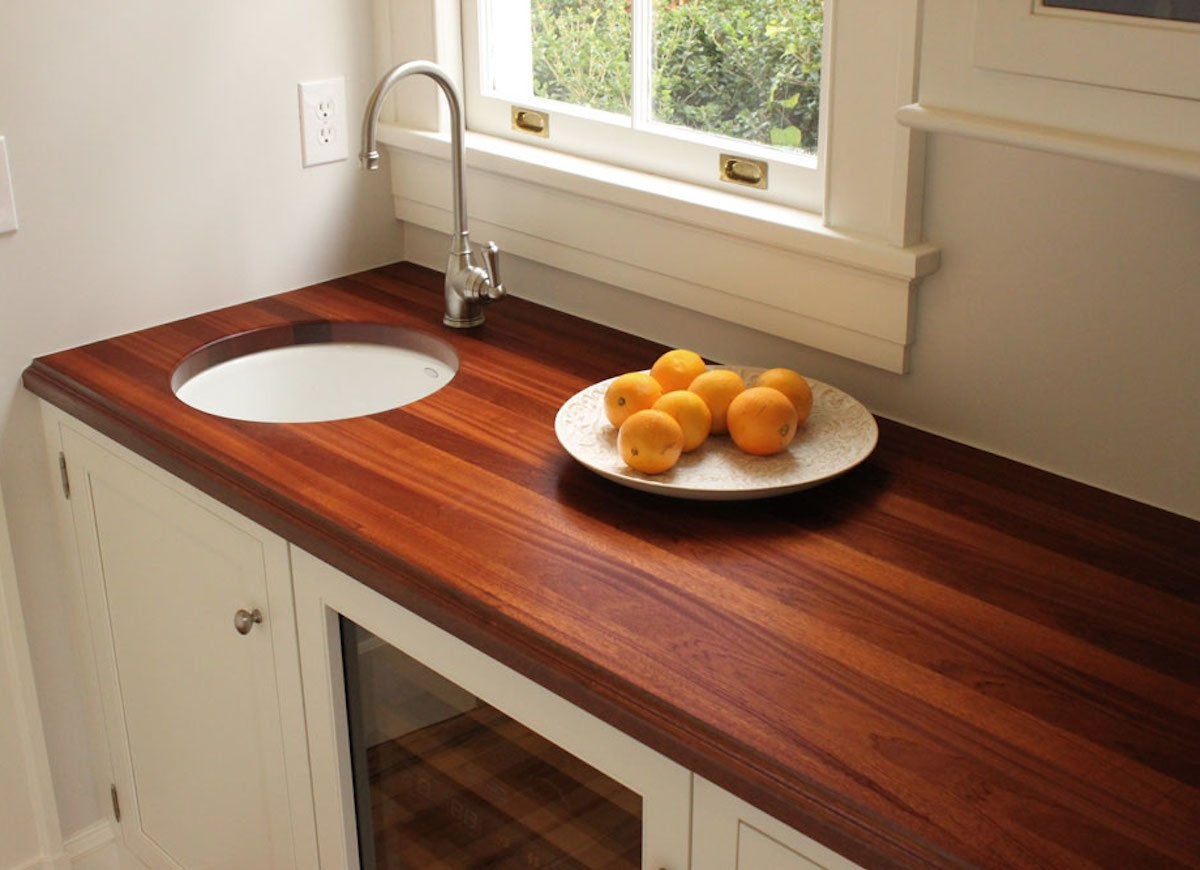
There are many different types of mahogany, one of the preferred wood of luxury furniture makers the world over. A relatively soft wood with a brown-red color, mahogany is not recommended as a cutting board, though its aesthetic qualities impart a special level of elegance, as seen in this custom design from J. Aaron.
Related: 25 Kitchen Trends You Might Regret

This Is the Year for a Kitchen Renovation
Whether you’re selling or staying, everyone can get something out of a kitchen update. Learn why we consider this renovation the Most Valuable Project of 2025 and how to stay on budget.
